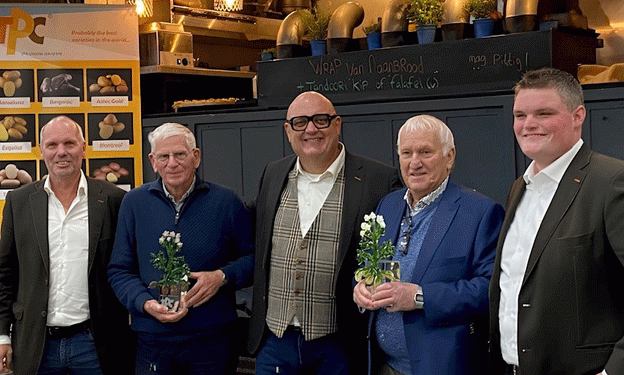Every year, potato farmers, agronomists, agricultural engineers, and scientists gather to share insights into the latest trends and innovations in potato breeding. This November, The Potato Company B.V. (TPC) hosted a dynamic Potato Show in Emmeloord, showcasing their achievements and future plans, while honoring the hard work of independent growers who play a crucial role in developing high-performing potato varieties.
A Global Gathering for Potato Innovation
The event, spanning November 6th to 8th, attracted guests from around the world, emphasizing the international importance of potato breeding advancements. This year marked a special milestone: TPC’s 20th anniversary. The celebration highlighted the company’s achievements in the potato industry and its global reach, exporting varieties to over 50 countries.
Honoring Growers and New Varieties
A significant highlight of the Potato Show was the presentation of the TPC Awards, recognizing growers Sjouk Brunia and Frits Werkman. Their efforts led to the successful registration of the Monza and Boston potato varieties, which are now celebrated additions to TPC’s diverse portfolio. In honor of TPC’s 20th year, these awards were made from potato plants representing the Monza and Boston varieties, symbolizing the growers’ contributions to agricultural progress.
Disease Resistance: A Top Priority
One of TPC’s key missions is to develop potato varieties that are not only high-yielding and delicious but also disease-resistant. Potato fatigue, a challenge caused by soil-borne pathogens and nematodes, continues to threaten crop productivity and soil health. This issue has spurred the development of varieties that can withstand these threats, ensuring better outcomes for farmers.
Potato disease resistance is crucial as it significantly reduces the need for chemical inputs, which are costly and have environmental impacts. By investing in disease-resistant varieties, TPC helps farmers lower production costs and maintain healthier soils, aligning with global trends toward sustainable agriculture. Current research highlights the increasing importance of sustainable practices, with the Food and Agriculture Organization (FAO) advocating for improved crop management to ensure food security and environmental health.
A Diverse Portfolio with Global Reach
TPC now boasts a collection of 11 robust and versatile potato varieties, including Montreal, Barcelona, Bergerac, Paris, Monza, and Boston. Each variety undergoes rigorous testing in trial fields both in the Netherlands and internationally. The focus on disease resistance, taste, and yield ensures that these varieties are market-ready and adapted to different climates and soil conditions. The global demand for high-quality seed potatoes has made TPC’s varieties a valuable asset for farmers around the world.
Data from the International Potato Center (CIP) indicates that global potato production has been steadily increasing, with potatoes ranking as the world’s third most important food crop in terms of human consumption. The introduction of more resilient varieties contributes to this trend, as they help secure reliable harvests in the face of climate variability and disease pressures.
The Future of Potato Breeding
The Potato Show in Emmeloord is more than an event; it’s a forward-looking platform that inspires ongoing innovation in the potato sector. As TPC collaborates with independent growers and researchers, the focus remains on developing varieties that can meet future agricultural challenges. This collaboration ensures that the industry remains resilient and responsive to the changing demands of global agriculture, food security, and sustainability.
The success of TPC’s annual Potato Show and the development of new varieties like Monza and Boston demonstrate the impact of innovative breeding practices. Disease-resistant, high-yield potatoes are essential for the future of sustainable farming, offering economic and environmental benefits to farmers worldwide. As TPC celebrates 20 years of progress, the ongoing commitment to research and collaboration sets a strong foundation for continued innovation in potato breeding.







